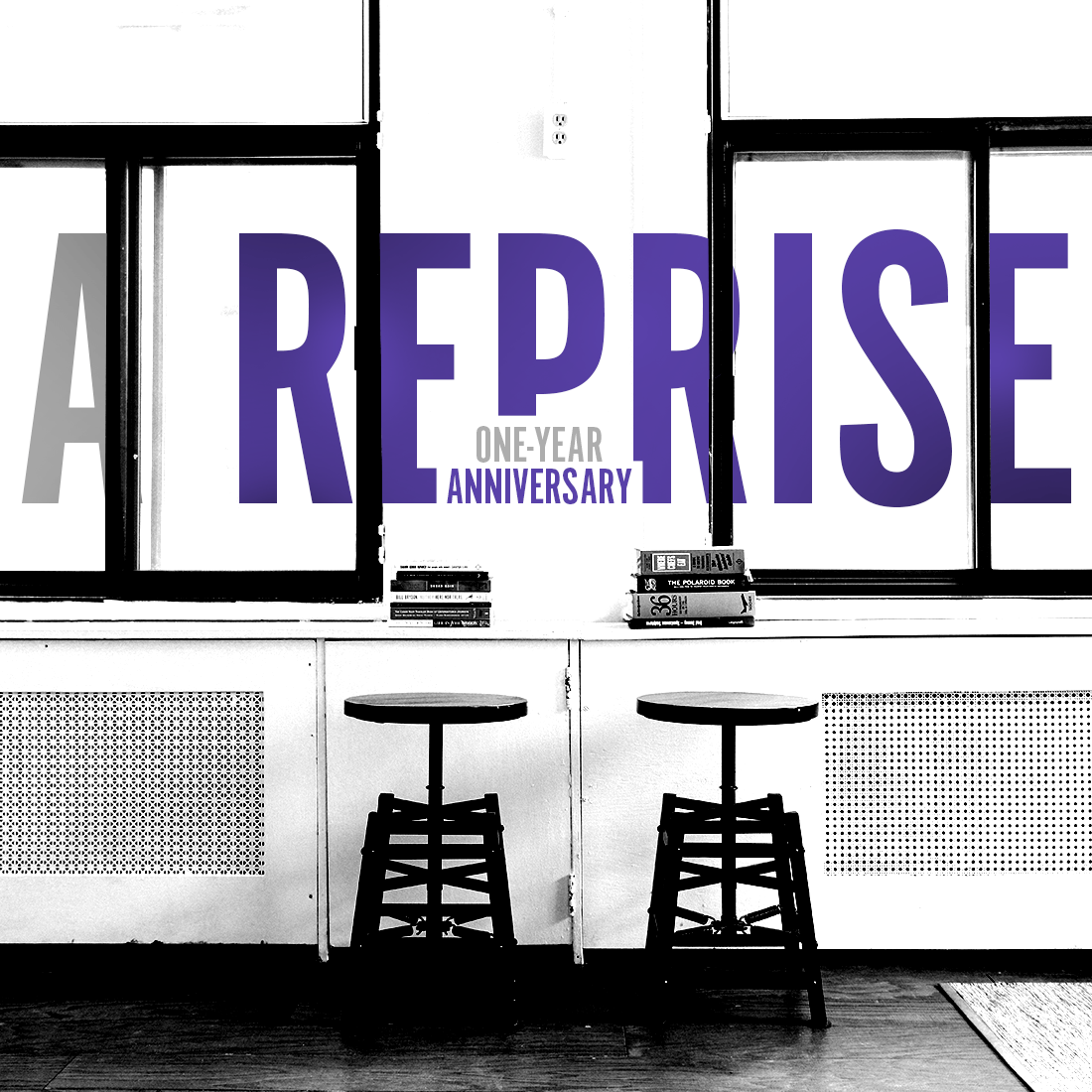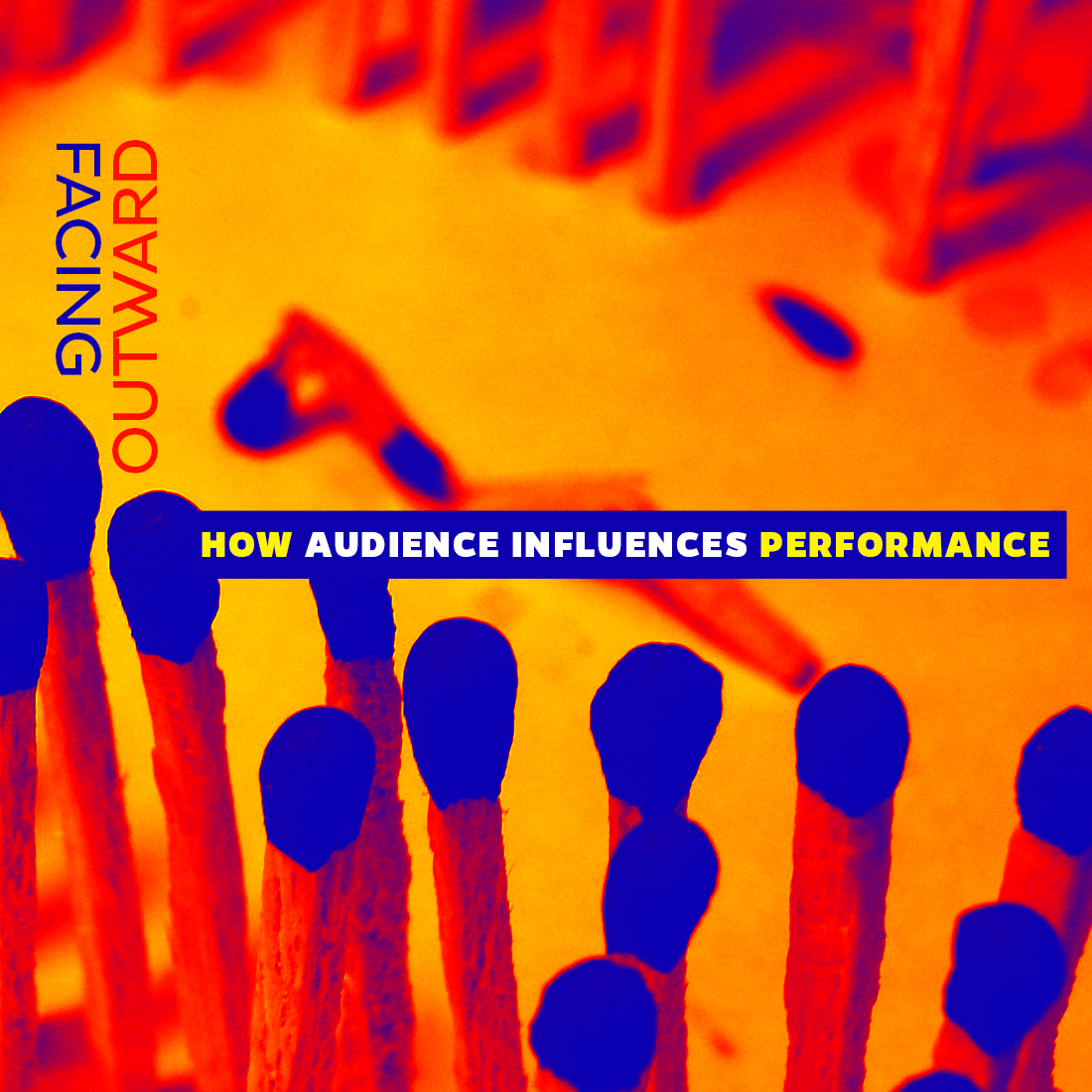KELLEY KIDD

Recently, on a trip to Denver, I had the joy of stumbling upon a production of a wholly one-of-a-kind performance, White Rabbit Red Rabbit, staged by Pipedream Productions. For this issue, we interviewed two members of Pipedream, Director of Marketing Alexis Robbins, who was present at nearly every performance of the show, and Associate Artistic Director Ashley Campbell, who found them the show and helped to secure the rights. They graciously shared their experience of working on this magical and unique production. Some of the answers come from one or both of them specifically, and some are a blend of what they shared with me.
But beware, some spoilers do lie ahead.
Hi Alexis and Ashley, thanks for making the time to do this interview!
For people who haven’t seen or heard of the show, could you provide a brief explanation of the premise of White Rabbit Red Rabbit?
Alexis Robbins & Ashley Campbell
White Rabbit Red Rabbit is a theatrical experiment in which one actor performs a script they’ve never seen before. It is a one woman/man show written by Iranian playwright Nassim Soleimanpour, and the actor who performs the script — it’s a different actor each night/performance — can’t look at the script until they open it (from a sealed envelope) right as they step on stage. They have to read it start to finish [onstage] no matter what.
Pipedream Productions’ trailer for White Rabbit Red Rabbit | Source: Pipedream Productions/YouTube
What led Pipedream Productions to choose to produce this show?
Ashley Campbell
As Associate Artistic Director, one of my jobs is to constantly be looking for shows we can do. I came across Nassim Soleimanpour when researching shows [from] the Edinburgh Fringe Fest and eventually, I was led to White Rabbit Red Rabbit. As soon as I found it, I applied for rights. The process was extremely quick. We held no auditions. There were zero rehearsals or techs or dresses. We asked local actors to be in it, quickly gathered the props, hung up some lights and marketed the show like crazy…we had zero access to the script until we paid for the rights in full — which were the most expensive rights we’ve ever paid for.
Can you tell us a little about the experience of putting it together?
Alexis Robbins
We all had a least a few people in mind to ask, so we just broke it up between the five of us and we each asked about 6 or 7 actors if they’d be game.
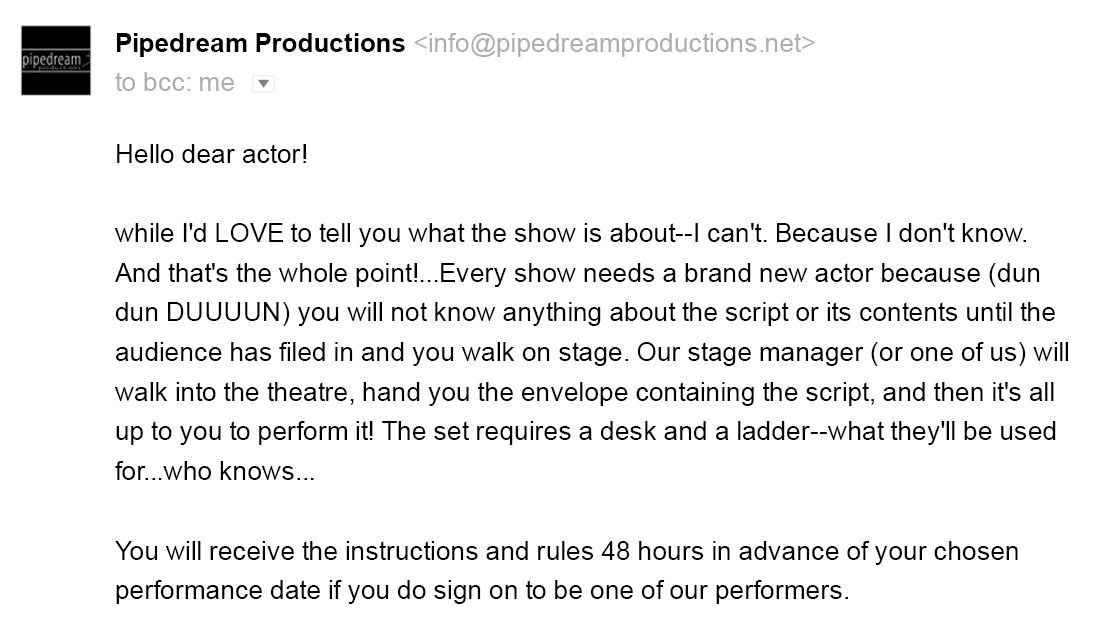
An excerpt from Pipedream’s “casting call” email for the show
What kinds of considerations did designers, if you had them, need to take into account?
Ashley Campbell
We had a set designer, lighting designer, and sound designer. Costumes were chosen by the actor, but we told them dressing in black, white, or red would be best. There wasn’t a real “set” — the playwright gives you some things to include if you’d like, but they were optional. We ended up including them all. Our lights were simple but they were my favorite. For the most part, lights were just up and down. We had no cues inside the show. But our lighting designer had a red cue pointed at the ladder onstage. Whenever someone climbed up the ladder, they would turn red. This usually happened when the actor said, “You are now a red rabbit,” which was amazing. Our lighting designer was one who was unable to know anything about the script, so this was an incredible, happy accident.
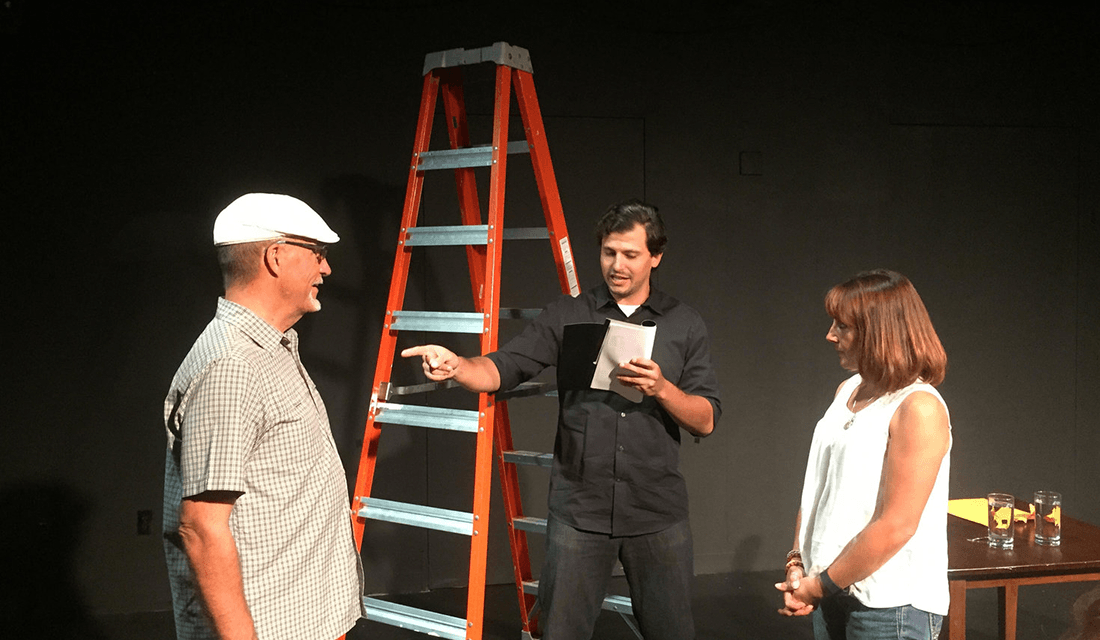
I’d love to hear about some of the different iterations of the production based on the actor performing that night.
What were some notable performances or nuances in reactions that you witnessed?
Alexis Robbins
The actors really, really varied. And it was funny because, obviously, they didn’t know what past performers had done, so whenever I came down from the sound booth to help take them to the dressing room after the show was over, almost [always] the first thing they’d say is: “What did everyone else do?” I think they wanted to know if how they interpreted [the script] was “correct” or the “norm,” but in all honesty, everyone was so different. We had one actor, at a certain part of the show, start crying so hard and fought through to read it till the end. We had some actors that made it side-splittingly funny, and others who truly took it to heart. What’s beautiful about work like this is how open to interpretation it is — that’s what art is all about. Each performer was a true artist and their visceral, honest reaction was so telling and so ‘pure’ — for lack of a better word — that it meant almost more than the words themselves (Sorry Nassim, your words were also beautiful!)
Relatedly, how did the participation of the audience impact the way the show went? Were there any evenings where the audience went “off book” from their role? Were there any surprises in terms of the audience interactions or reactions?
Oh man, the audience! What a fun role they had. We had a few go completely off book, and that was interesting for the actor because they’re given a certain set of “rules” to follow before they go on stage and, let’s just say, the audience made it hard for them to stick to those rules at times. Some audience members 100% embraced the spotlight, while others could clearly not wait to return to their seats. The audience was such an uncontrollable variable throughout the run, and that was both terrifying and ridiculously enjoyable.
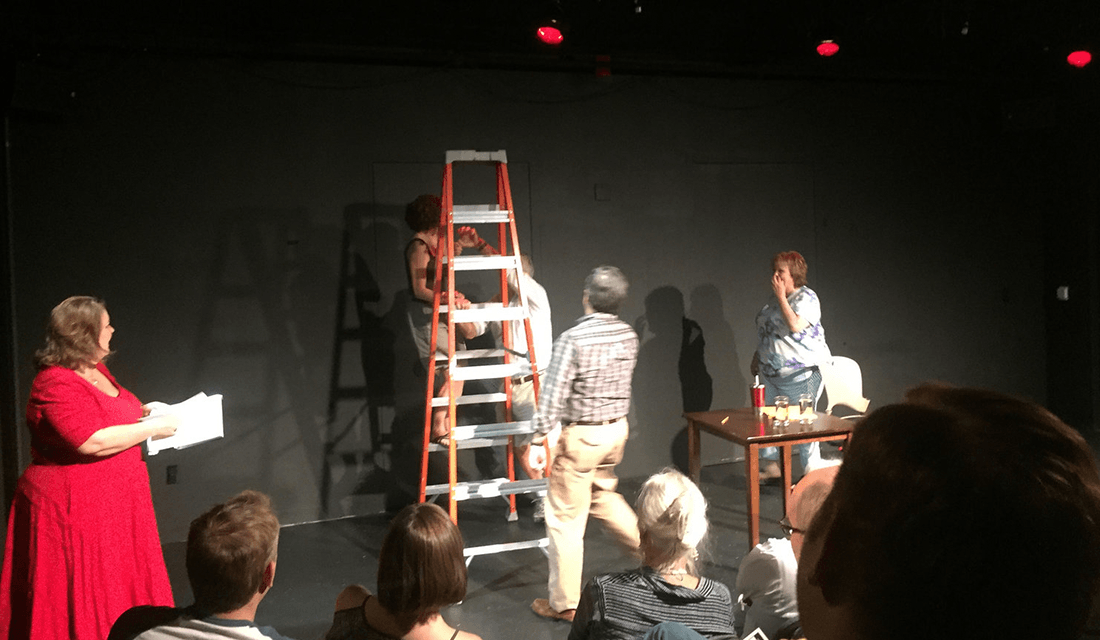
Ashley Campbell
There’s a moment in the script where the playwright tells the actor to tell the audience to look at the beautiful woman in the back. Emma Messenger, one of our actors, went up to the audience and pulled out one of her long-time friends and had the audience tell her she was beautiful. It was a fun, playful, unique moment to her show. Most notably, only twice did an audience member remove the main props [drinking glasses] from the stage. This was the interaction that stood out to me the most.
For me, it seemed like the most significant theme in the show was conformity to expected roles and the way we treat social contracts as absolutely binding.
Can you both share some of your thoughts on how the show explores that theme?
Alexis Robbins & Ashley Campbell
The play really makes the audience come to terms with the fact that their actions matter. It’s MLK Jr. Day today so, as I write this, the quote that comes to mind is, “There comes a time when silence is betrayal.”
That really resonates with me for this piece. Sometimes I think we think we’re doing the right thing by staying out of something, or deciding not to put our nose in someone’s business. We think that our hands will remain entirely clean if we choose not to act and/or react. This play was all about that. It’s all about that [notion of] “if you are in need of help in a public area, make eye contact with a stranger because then they’ll feel personally accountable.” That’s what this play is. It’s [looking] an entire audience in the eye and telling them, “You need to listen. This is important.”
Were there themes that you noticed more or less by the end of working on the show, than at the beginning?
Alexis Robbins
I ended up seeing this show 19 times out of the 21. Every time I watched it, something new stuck out to me. A line resonated a bit more, or a certain word really caught my attention. Certain phrases I’d heard actors read over and over and over again [and] never really stuck out, but then by the end I’d be like, “Oh! Now I get it,” and it’d give me crazy goosebumps.
I think a persistent theme throughout the show is truth. Speaking your truth. Playing with the truth — dangerously skipping between what is honest and what’s not. Knowing who you can trust. This show really jumbles what is and is not real and it makes you anxiously grasp for any bit of truth you can hang on to. And then it flips that on its head. It’s a real mind-fuck after a while. It’s so much deeper than I initially felt, but by watching it 19 times, I almost meditated on the words and they still stick with me. I think about it quite often, and still toss around ideas about theme and the play’s message. Sometimes I think Nassim would get off on the idea that his play does/did that — maybe that was the ultimate point.
Editor’s Note: SOME PERFORMANCE SPOILERS AHEAD.
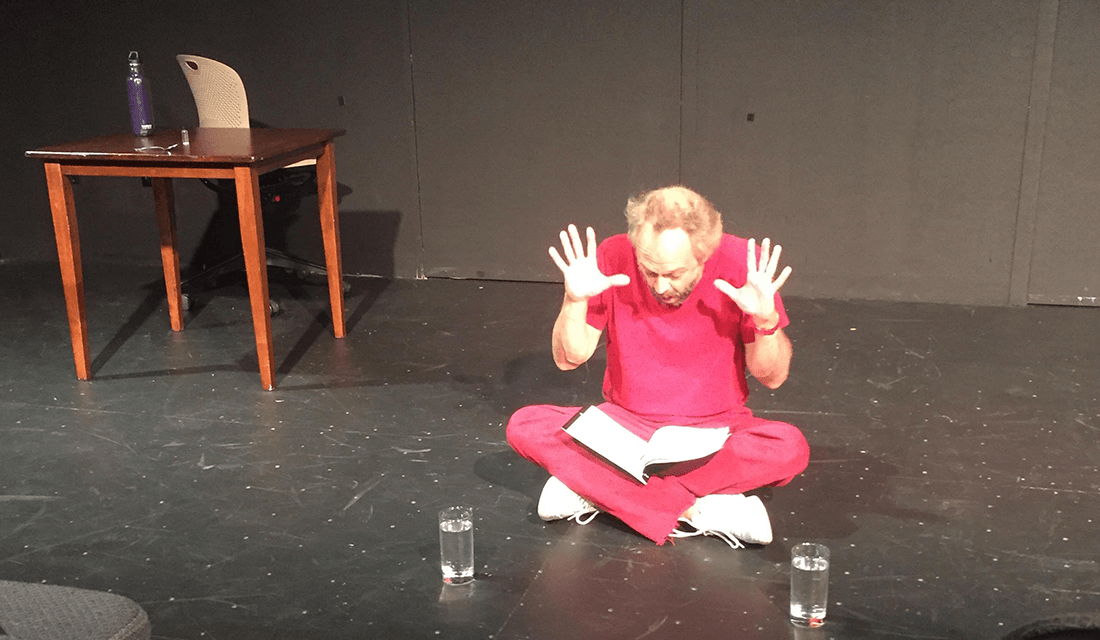
At a certain point in the show, there is the possibility of the actor putting him/herself in real physical danger and the audience are given the opportunity to intervene.
As members of the creative team who did know whether or not the actor was in actual danger, what was it like to watch the audience react to this scenario?
Alexis Robbins
It’s so hard to say anything without giving anything away! I was honestly a bit disheartened by some of the reactions. I thought some would be stronger. I think I wanted to believe that people would go to drastic measures when dealing with the unknown, but then I have to think about what I would do if I were an audience member who was going in cold. And I don’t know. I would probably have the same reaction, simply because I’d be in disbelief. I was always super proud and excited when someone really went out on a limb and put themselves out there. That was cool. They clearly understood the whole “if your friends jump off a bridge, would you?” phrase every mom says at one point or another.
The actors were funny… Some would look straight up at me, [as] I was sitting in the booth, and they’d just shake their head at me. It was interesting because many of them were cool as a cucumber in front of the audience, and then, as I went to take them to the dressing room, some were noticeably shaking. Some had to sit in silence for a bit just to shake it off and get it out of their head. You could tell that they wanted to help make the audience feel relaxed, but inside, I think many of them were freaking out, understandably.
Ashley Campbell
There were a few moments where the actor referred to us and it was usually really funny, especially if the actor knew us by person. I was hoping more people would get up and stop the show. Some people would say “don’t do it,” but very few actually got up and made it impossible for the actor to complete their task. I always wonder what I would have done if I performed it — but I’ll never know!
Do you feel like there is an unwritten expectation that audiences don’t share their experience when they leave the room?
Ashley Campbell
I have a feeling the audiences of White Rabbit Red Rabbit love to talk about their experience. Same with actors. It’s an incredibly unique experience for both parties. It creates a lively discussion — one like I’ve never seen. Audience members would stay in our lobby for up to an hour after the show to discuss everything that happened and we were never in a rush to get them out.
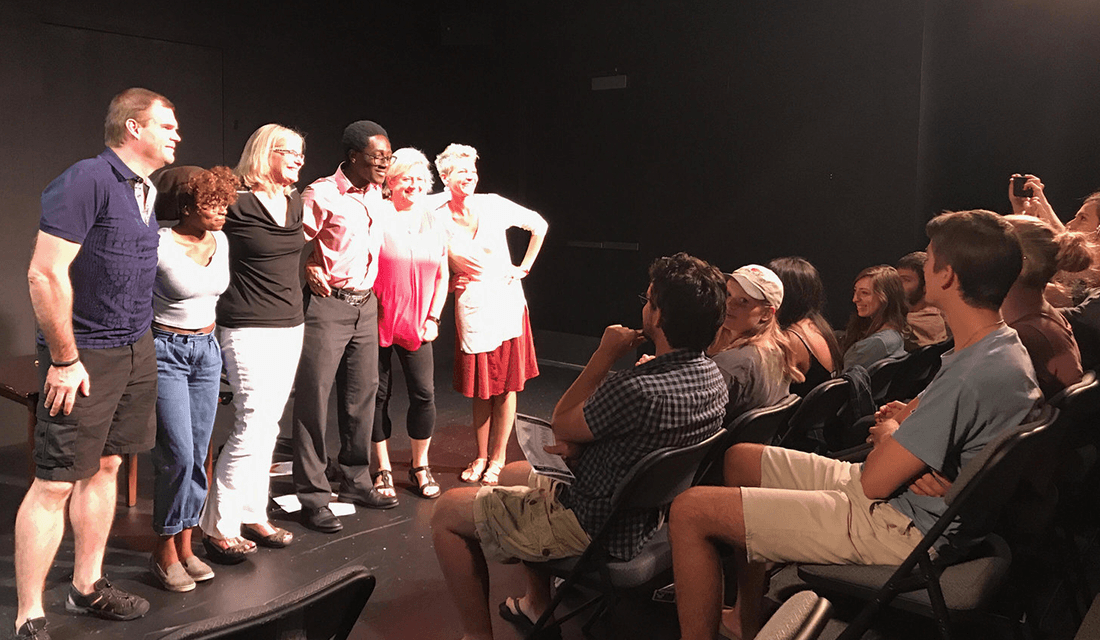
What about for actors? If someone has performed in this show, does that mean they never can again?
Alexis Robbins
Correct! If you were an actor in White Rabbit Red Rabbit, you can never do it again. Since I’ve seen it, I can never be an actor in it. There aren’t any legally binding documents or anything [like that], I just think theatre people are the best people and they don’t want to spoil an experience for others. I don’t think anyone wants to be the asshole that ruins White Rabbit Red Rabbit for everyone…[it’s] like the kid who reminds the teacher that homework is due — I was often this kid — and no one wants to be that kid! First rule of White Rabbit Red Rabbit: You do not talk about White Rabbit Red Rabbit. Period. Don’t be that person.
Is there anything else you’d like to share?
Alexis Robbins
We loved this show. It brings us such joy to have gained such a supportive following, to have had the chance to meet and work with so many lovely people, and to have had the opportunity to see this show so many times. Fun fact: I had to write up a show report at the end of every performance. It included audience reactions, actor reactions, etc. and, as the stage manager, I was specifically told to email them to Nassim Soleimanpour directly every single day. So. Nassim has 21+ emails from us. And that feels pretty cool. Five 20-somethings from Colorado communicating with one of the most unique, up-and-coming playwrights of our generation. It doesn’t get much better than that.
Thank you both so much for your time!
All photos courtesy of Pipedream Productions.
Alexis Robbins
She graduated from the University of Denver in 2015. She received a BA in Theatre (distinction in Playwriting) and Criminology. Alexis is an active actor and playwright within the Denver community. In 2016, she performed in Pipedream’s production of 4.48 Psychosis by Sarah Kane, and she has frequently performed at the Edge Theatre and the Athena Project Festival. Her plays have been produced in both Denver and Los Angeles, CA. By day, she is the Content Coordinator/Writer for the JCC Denver’s Marketing Department.
Ashley Campbell
She is Pipedream Production’s Associate Artistic Director and Resident Sound Designer. She was thrilled to be a part of Pipedream’s inaugural show, 4.48 Psychosis by Sarah Kane, as an actor and sound designer. She holds a BA in Theatre with distinction in Acting & Directing from the University of Denver. Ashley’s favorite directing credits include Seven Jewish Children by Caryl Churchill and Hamletmachine by Heiner Müller. Since graduating, Ashley has been busy working with theatre companies such as BETC, Arvada Center, The Edge, Athena Project and Pandemic Collective.


